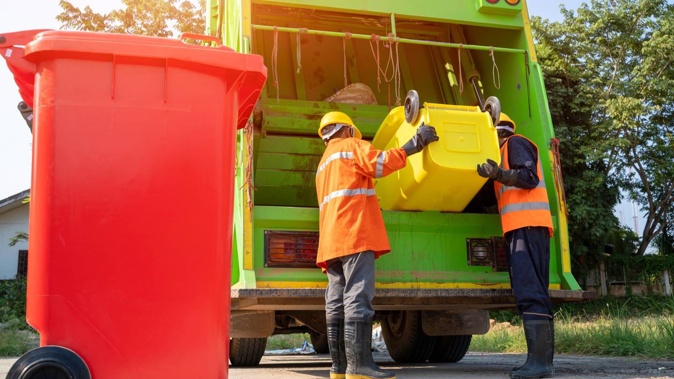
The CEO of Plastics New Zealand has not taken kindly to the suggestion that recycling is “essentially a fraud”.
The comments were made by Waste Management New Zealand chemical engineer Timothy Brake, who told BusinessDesk writer Cecile Meier that only a small fraction of our rubbish is recycled and when it is, it’s often a mere delay to it ending in landfills.
Rachel Barker, the CEO of the plastic industry association Plastics New Zealand, has on today’s episode of The Front Page podcast taken exception to these claims.
“The transition to a circular economy involves a full system shift,” Barker told The Front Page.
“I find it quite disappointing when a player in that system, in this case, a landfill owner, spreads misinformation. It’s really unhelpful and impacts the confidence in recycling.”
Barker also rejected Brake’s suggestion that recycling simply delays the process of items like drink bottles and meat trays ending up in landfills.
“Drink bottles are turned into meat trays or fruit and veggie punnets, and those items are actually, in turn, recycled back into those same packing items at Pact Packaging, which was formerly Light Plastics down in Wellington,” she says.
“We’ve also got kerbside standardisation coming next year to ensure that all councils around the country are collecting those items.”
Brake does, however, have a point in that products can only be recycled so many times before they do eventually end up in the landfill. Barker herself admits that there is some debate as to how many times the same plastic can be recycled before it becomes unusable.
The views expressed by Brake are somewhat surprising, given that they run counter to the narrative his employer, Waste Management New Zealand, usually pushes on recycling.
BusinessDesk journalist Meier told The Front Page that Waste Management is big on recycling.
“It has contracts with several councils around the country to collect recycling at the kerbside and process it at its facilities,” Meier says.
“It has also invested in recycling in recent years.”
Meier took Brake’s claims to the chief executive of Waste Management New Zealand, who said that he supports the view that we produce too much plastic and that there should be more efforts put into reducing it at the source.
This point is, at the crux of all the remarks that were ultimately made by Brake, is that while there might be debate about the effectiveness of recycling, there is widespread consensus that we are simply producing too much plastic and consuming far too much to make any counter-efforts sufficiently sustainable.
“Brake’s point is that recycling is a distraction from the real issue, which is how much stuff is being produced in the first place,” says Meier.
“According to a 2022 OECD report, plastic waste has doubled in the last 20 years and only 9 per cent of it is being recycled. The rest goes to the landfill, is incinerated or leaks into the environment. The packaging industry in New Zealand and overseas has been lobbying hard against regulations.”
Brake’s comments don’t suggest recycling is ultimately useless, but rather that we have convinced ourselves that it’s some silver bullet that’s going to solve the plastic problem overnight - this simply isn’t the case.
Meier says more simply needs to be done to shift the responsibility and the cost to the industries actually producing all this plastic in the first place.
Meier adds that the point of this reporting is not to undermine the value of recycling but rather to point out the limitations of the strategies currently being employed.
“Stories like this help people understand the limitations of recycling. It’s important because if we understand that recycling is not the golden solution we think it is, then we might focus more on producing waste in the first place and reducing the amount of stuff we buy.”
To hear the full discussion listen to the latest episode of The Front Page podcast.
The Front Page is a daily news podcast from the New Zealand Herald, available to listen to every weekday from 5am. It is presented by Damien Venuto, an Auckland-based journalist with a background in business reporting who joined the Herald in 2017.
You can follow the podcast at iHeartRadio, Apple Podcasts, Spotify, or wherever you get your podcasts.
Take your Radio, Podcasts and Music with you









